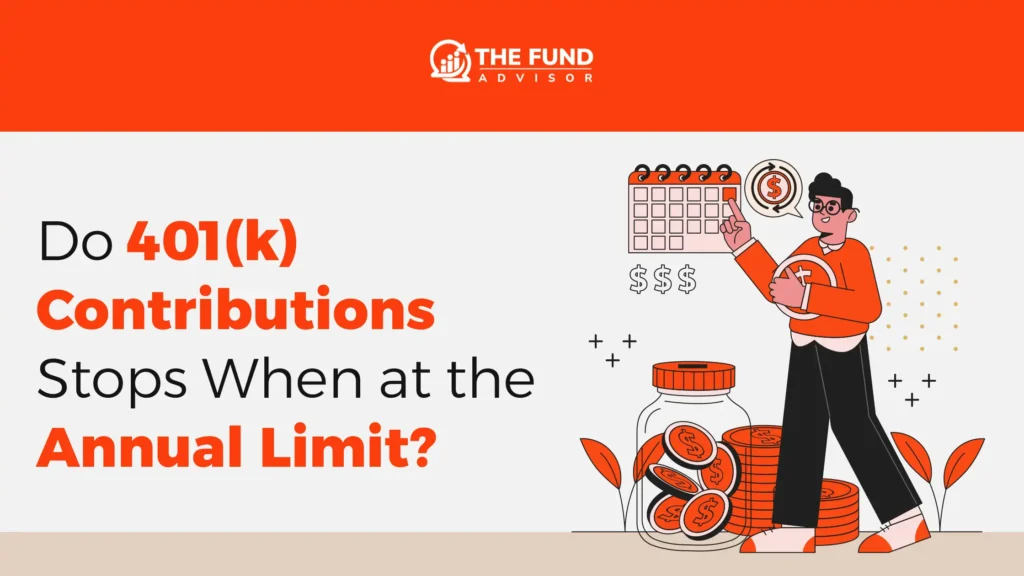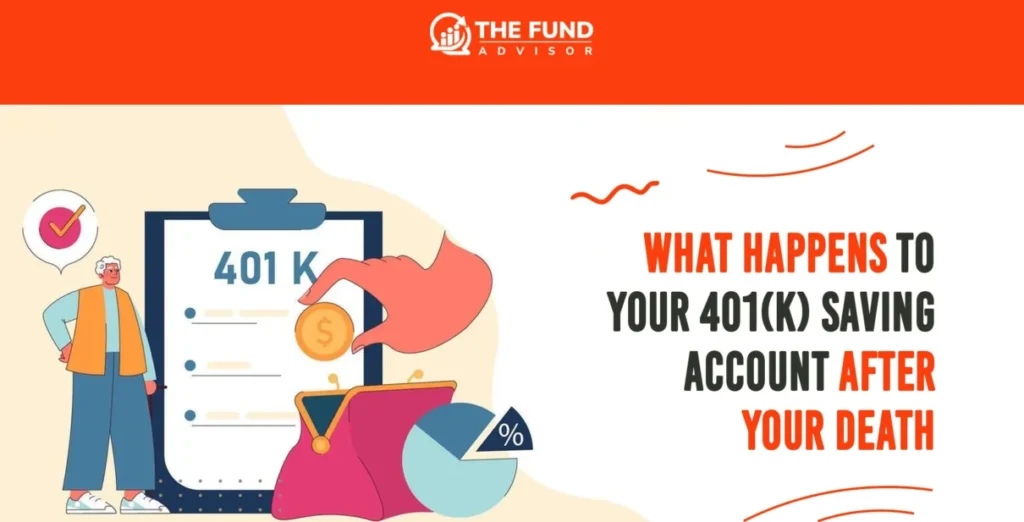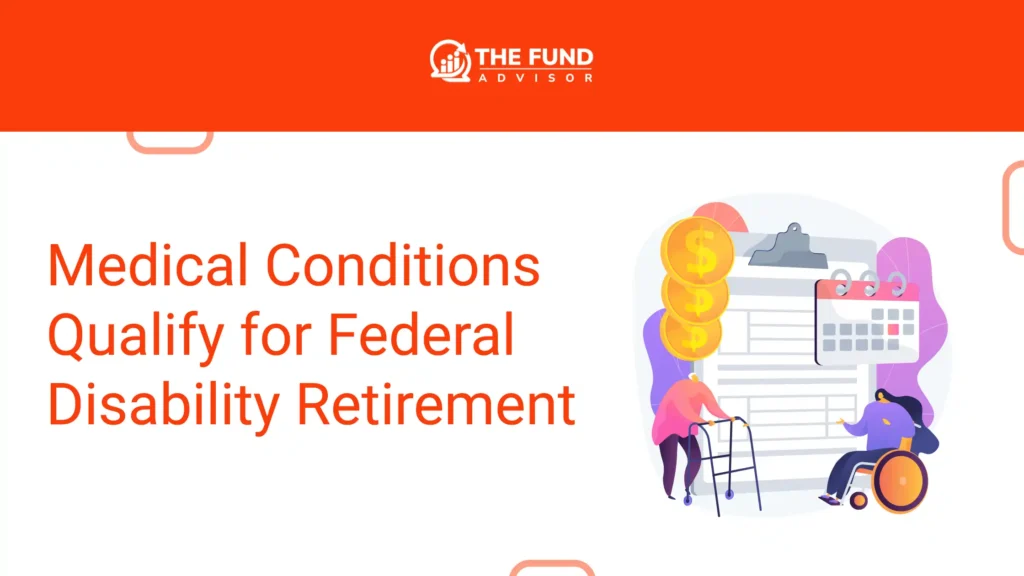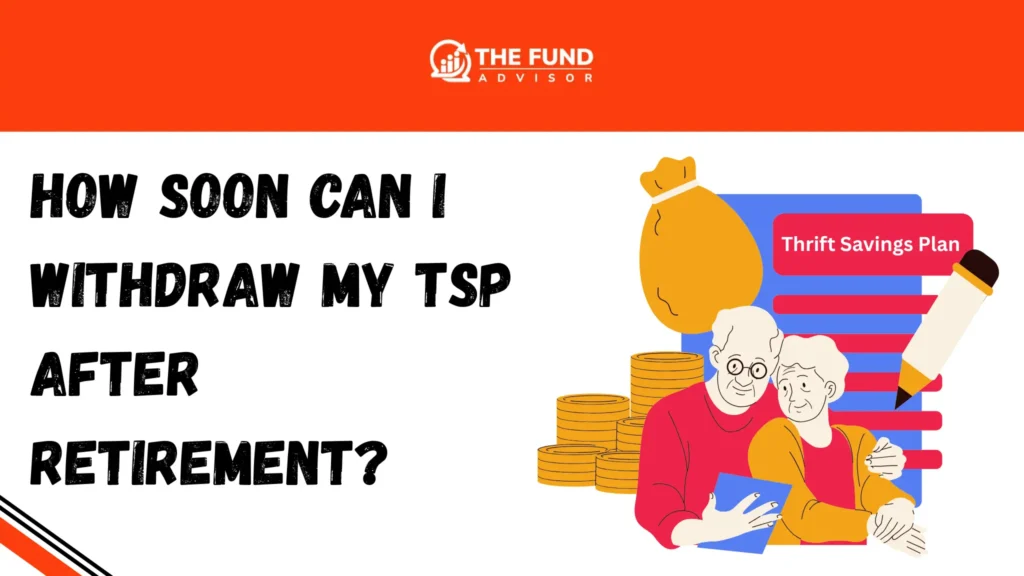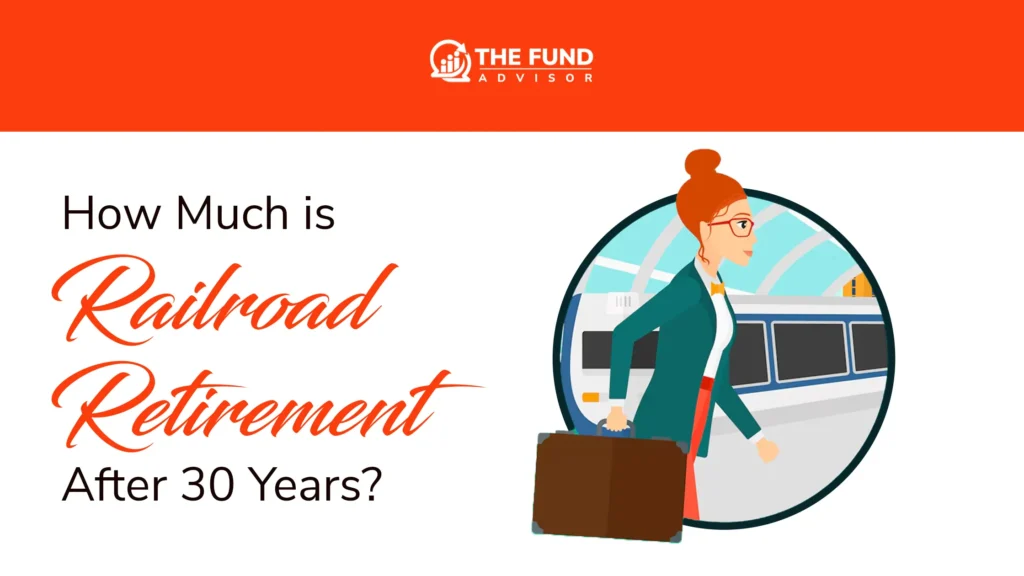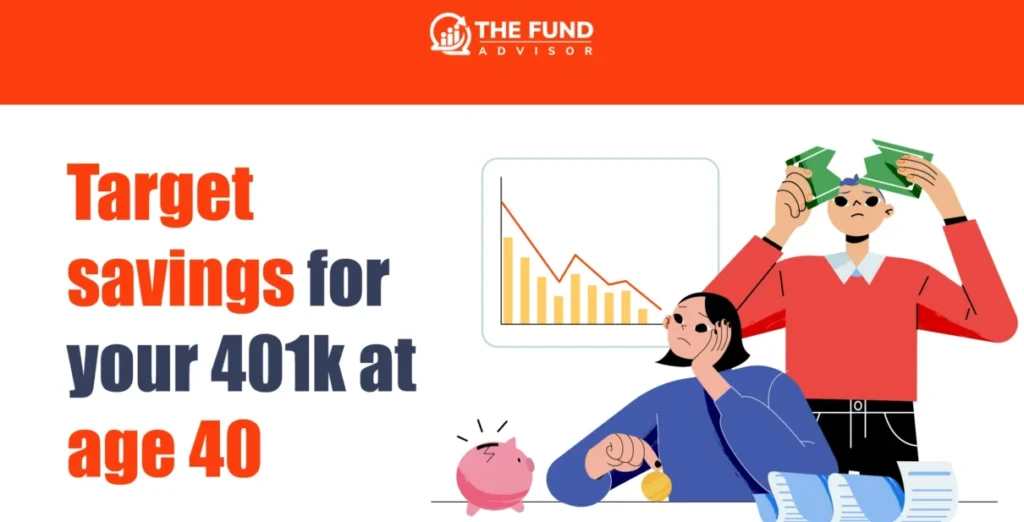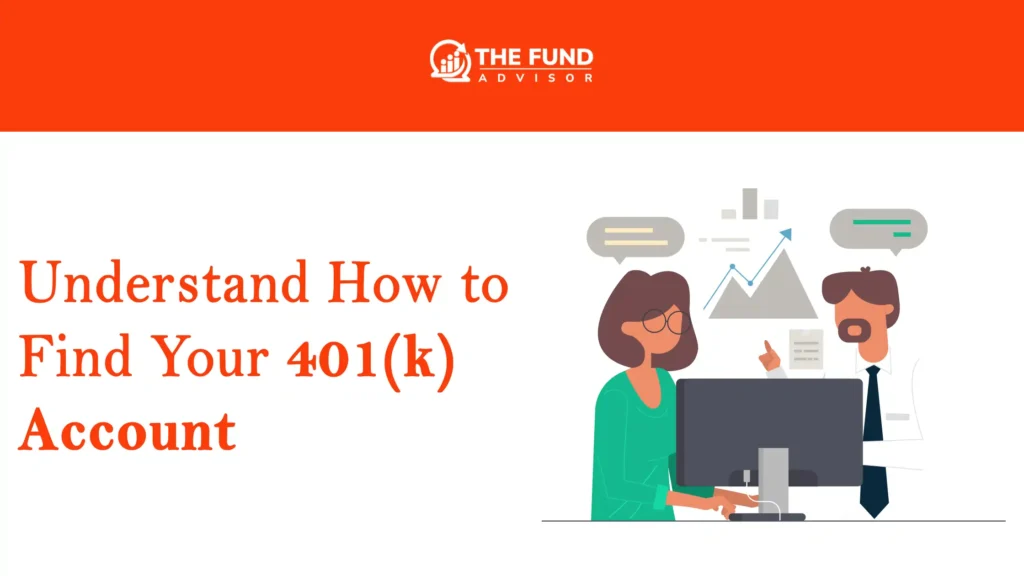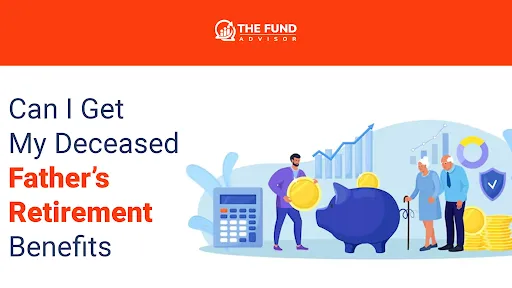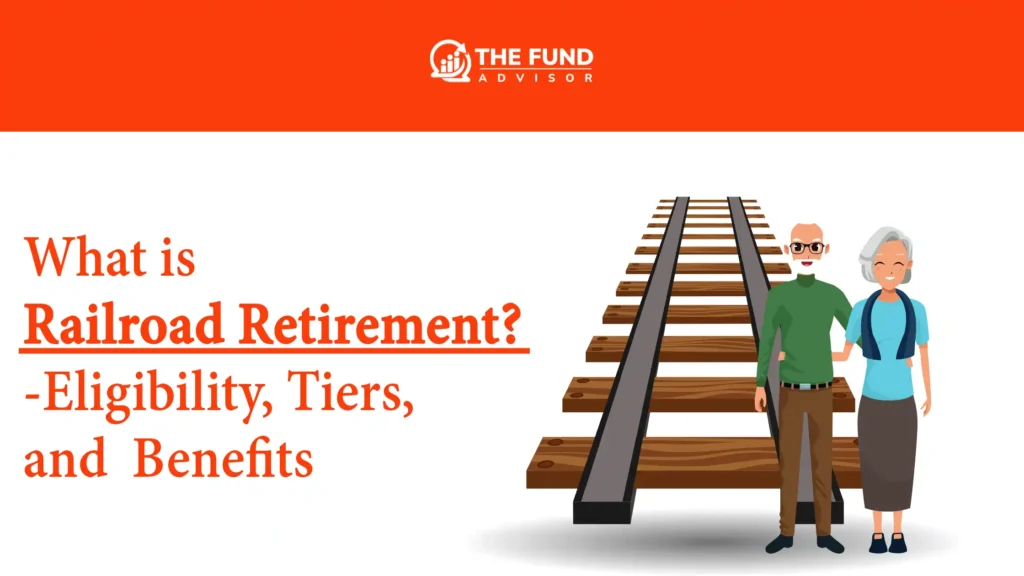Having a 401(k) retirement savings account is an effective way to save for life after employment. And we all know that 401(k) contributions are made from pre-tax income, which reduces the overall taxable income. But have you ever wondered, do 401(k) contributions automatically stop at limit? This is one of the most genuine questions employees ask. So, let’s break down this concern by covering all necessary aspects related to the contribution limits of a 401(k).
What Is A 401(k) Contribution Limit?
The contribution limit is the sum of money that an individual can deposit in a 401(k) account annually. Every year, this limit is set by the Internal Revenue Service (IRS), and it is the maximum amount that can be contributed to a 401(k).
If we talk about the current years, the contribution limits are :-
- $23,500 for individuals under age 50
- $31,000 for those aged 50 and older (including $7,500 catch-up contributions)
Note that this does not include the employer’s match; this just includes the contribution made by the employee.
The combined contribution, including the employee and the employer’s match :-
- $69,000 for 2025
- $76,500 if you’re over 50 and eligible for catch-up
These limits are applicable for all employees, doesn’t depend on income.
Why Is There A Limit On 401(k) Contributions?
The reason behind a limit on contribution amount is to distribute the plan’s benefits fairly among all levels of income. If there is no limit applied, then the higher earner tends to contribute a higher amount, and the individuals who have low income need to contribute a smaller amount of money. To prevent any such discriminatory-like situation, the IRS (Internal Revenue Service) set a fixed annual contribution limit.
Plus, this practice will encourage all types of employees to feel equality and fair behaviours. The revenue system applies contribution limits to other retirement accounts also; the reason is the same to deliver high equality values. And a fixed financial figure will promote a smooth transition of the economy and wages.
Do 401(k) Contributions Automatically Stop At Limit?
Yes, the contribution automatically stops when the annual contribution limit is reached. As mentioned, the contribution limit cannot be crossed in any case. This is to ensure a fair opportunity for all pay scale levels of employees. So, what happens when I hit my 401(k) contribution limit, there are automated systems configured with these accounts where the automatic stoppage is applied when the limit is hit.
However, this isn’t guaranteed in every situation, especially if you :-
- Changed jobs during the year
- Contribute to more than one 401(k) plan
- Work for a company with an outdated payroll system
- Are self-employed or manage contributions manually
It is very important to always check your contribution limits to optimize retirement savings. If you find your contribution stops automatically, then contact your HR department or 401(k) provider to ensure that this is due to a valid reason and not a technical issue.
How Employers Handle Contribution Limits?
The 401(k) accounts are directly handled by the employer. The respective department is responsible for ensuring that you are not overcontributing. Here’s how :-
- Payroll Monitoring : In most organizations, the salaries are distributed using an automated payroll system, which also ensures the contributions of employees to their 401(k) account. These systems automatically stop the contributions once the limit is reached.
- Notifications : Many 401(k) plans have a notification policy where the employee will be notified when close to the contribution threshold.
- Setting Own Limits : There is an option for setting a limit to the amount you are paying in the form of contributions to the 401(k) account to avoid any misleading. These limits may be in the form of a percentage of your monthly salary.
However, your employer can only track the 401(k) account that is provided to it; if you change jobs, then the previous employer cannot track the new 401(k) account. Stay connected with your HR department or employer to get a clear picture of what’s going on.
What Happens If You Overcontribute To A 401(k)?
It is a very rare chance, but can is possible. Sometimes, it is seen that knowingly or unknowingly, employees exceed the contribution limits, and the question arises, what happens if I contribute more than $23000 to my 401(k)? If this happens, then the individual needs to face double tax implications and other penalties if not managed properly.
What are the consequences of these conditions?
- Double Taxation : In such a situation, you need to pay double taxation, one at the year in which you have contributed and at the time of withdrawal also.
- All the earnings or growth on your excess contribution will be taxed, and you need to pay tax on the earnings also.
- If this is not correctly promoted to the IRS, then some extra penalty may be added to your bill.
So, do 401(k) contributions automatically stop at limit? It depends, and sometimes overcontribution can also happen by an employee, which includes serious financial consequences. To prevent any such money-related liabilities, report immediately to your employer and the IRS to stop the contribution and further issues.
Employer Match When You Reach The Contribution Limit
Many people ask, Do you get an employer match after you hit the contribution limit? Note that the $23,500 contribution limit is only applicable to the employee for their income. The employer’s match is an extra income that is different from the annual contribution limits. The combined (Employee + Employer’s match) annual contribution limit is $69,000 for individuals under the age of 50 years and $76,500 for people over this age.
If your individual contribution limit of $23,500 has been reached, then the personal contribution will stop, but the employer’s match will continue for the current year. If the employer provides a good amount of match, then the contribution will continue until the combined limit is reached. So, to avoid and limit exceeding, always monitor your combined contribution limits as well.
Correcting An Excess 401(k) Contribution
Do 401(k) contributions automatically stop at limit? Sometimes the situation may differ. If you have found out that you have crossed the contribution limit, and the 401(k) account is being contributed to.
Follow these suggestions to avoid taxation :-
- You need to report this excess deposition to your plan administrator or your employer.
- Get a withdrawal for the excess contribution before the tax filing date of the current year you have exceeded the limit.
- You will get the excess amount back, and if there are any earnings on it.
- Always include this transaction in your annual gross income when filing your income tax.
It is not advised to skip these steps, and the excess contributed amount will remain in the 401(k). In this case, you are going to face serious financial liabilities that can result in double taxation on your contributions.
Tips To Stay Within The 401(k) Limit
There are some tips to avoid asking, do 401(k) contributions automatically stop at limit? It is very easy to stay within the contribution limits set by the IRS. Here are some quick tips :-
- Based on your income, set contribution goals early in the year to avoid large end-of-year deductions.
- Divide the annual limit by the number of pay periods to contribute evenly.
- Increase contributions when receiving bonuses, but track year-to-date totals.
- Avoid excess if switching jobs, and communicate with new employers about prior contributions.
- Use plan tools or financial apps that alert you when you’re close to the limit.
Being proactive helps you avoid tax headaches while maximizing your retirement savings.
Conclusion :-
The IRS sets a fixed annual contribution limit to a 401(k) account. These are set to make the benefits system fair, so that every employee can get an equal number of benefits regrade less to level of their income level.
Some payroll systems include the automated stoppage system when the 401(k) contribution limit is reached. But it is completely your responsibility to monitor your contribution transactions and avoid any overcontribution situation that leads to double tax implications and penalties. So, the question, Do 401(k) contributions automatically stop at limit, is answered here.
Frequently Asked Question- Do 401(k) Contributions Automatically Stop At Limit?
How to fix excess 401k contributions?
If you exceed the annual contribution limits of a 401(k) account, then report it to your employer and the IRS. In the case you failed to report this issue, then you need to face double tax implications with multiple penalties if not manage this problem properly.
What happens if you don’t remove excess 401(k) contributions?
If you didn’t take any action or take the excess contribution back before the tax filing date of the current financial year, then you need to face double taxation on the contributed money, and when you withdraw it. Also, the earnings are subject to taxation, which makes the overall process complicated.
How do I make sure I don’t go over my 401(k) limit?
To make sure that you have not exceeded the 401(k) limit, you need to regularly monitor the contributions. Also, frequently review your 401(k) account statements to avoid any overcontributions. Many 401(k) plans provide an online dashboard that makes the monitoring phase easy as it is.
What is the maximum I can contribute to my 401k?
The maximum annual contribution limit of a 401(k) account is $23,500 only from the employee’s payroll if you are under the age of 50. For individuals over this age, the contribution limit is $31,000, which includes $7500 of catch-up money. However, there is an employer’s match also available. The combined limit includes the employee’s contribution and employer’s match is $69,000 for individuals under the age of 50 years and $76,500 for people over this age.

